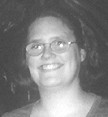
Diversity is not political-correctness
Ugh. I can’t. Uh. Wow.
I don’t even know how to react, or to put into words myshock about the column “Dealing with Diversity” by HansZeiger that appeared in The Daily Campus on March 5, 2004. Iwas frustrated after reading that column because there were so manyinaccuracies. It worries me that people might see diversity as athreat.
As Zeiger points out, diversity and awareness of multiculturalissues has grown tremendously in our society. We are seeing iteverywhere. It is a booming industry. Isn’t that wonderful,though?
I mean, look at what that means. That means that as a society,we are finally talking about differences and trying to addressthem. Instead of living with inequalities that we have had in thepast, we are planning the world in which we want to live. Insteadof assumptions and stereotypes, we’re all learning from eachother.
Diversity education is meant to be a place where we canfacilitate this learning. A place we can share ideas and can thinkabout our society.
Zeiger made a lot of comments about what diversity trainers doand don’t do. While, he is entitled to his opinion, let mespeak up — as a diversity trainer here at SMU — toclear up some inaccuracies in his story.
Diversity trainers do not engage in the, “stifling of freespeech and traditional morality.” This is very much to thecontrary.
Diversity trainers want everyone to have their voice heard. Whatare your opinions and thoughts? How have your experiences shapedwho you are? It’s not until we hear where you are coming fromthat we can work together, and live together honestly.
Diversity trainers do not, “seek the final salvation ofhuman beings from the discomfort of discrimination.”
Although, that would be cool, I’m not sure that any oneperson — trainer or otherwise — can save people fromthe discomfort of discrimination. Discrimination is a realexperience that has changed lives. However, giving a voice to thosewho have been discriminated allows us all to understand how itbreaks down our society.
Diversity trainers do not talk about, “sensitivity towardracial, ethnic, gender or sexual minorities only.” Diversitytraining is about working with everyone to learn more about who weare and what experiences we’ve had.
I think sometimes it is hard for white Americans to realize thatthey have a role to play — a reason to be in the room —in diversity discussions.
As a white American, I am here to tell you, whites are people,too! How has it been as a white American? What you think about yourwhite race is as much important as learning and sharing about theexperiences of other racial groups.
In addition, understanding that there are inequalities might bea little scary because that means things are going to change.
However, this change does not mean that society ignores theneeds of white America. It means that maybe we’re broadeningthe scope of what needs are.
Diversity trainers are not trying to, “dismantletraditional codes of respect and civility” by focusing on”divisiveness and bigotry.” I don’t even know howto respond to this one at all.
Respect and civility are the keys to a multicultural society. Wespend a great amount of time setting up boundaries and creatingsafe zones where respect and civility can be shared.
Sometimes, diversity trainers do talk about divisiveness andbigotry because those are realities. Those are the things that wewill avoid through respect and civility.
Diversity trainers, “care nothing for … politicalcorrectness.” Wow, maybe there is common ground for diversitytrainers and Zeiger. I whole-heartedly agree! Political correctnessis often casually defined as putting on the air of an open mind, orusing language to mask true feelings.
I don’t want anyone to hide behind these words. I wantthem to express how they feel. I want to know their thoughts andactions. I think the fear of making mistakes has grown so much thatwe can’t be true to ourselves. Speak your mind.
If I don’t like it, I’m going to tell you. I knowyou’ll do the same for me. It’s called a discussion.Let’s have one!
Multiculturalism and diversity are for everyone, come join thefun!
Karen Click is the Asian-American student servicescoordinator for the Department of Multicultural Student Affairs atSMU. She may be reached at [email protected].








